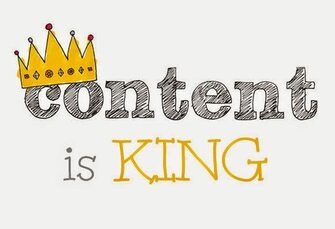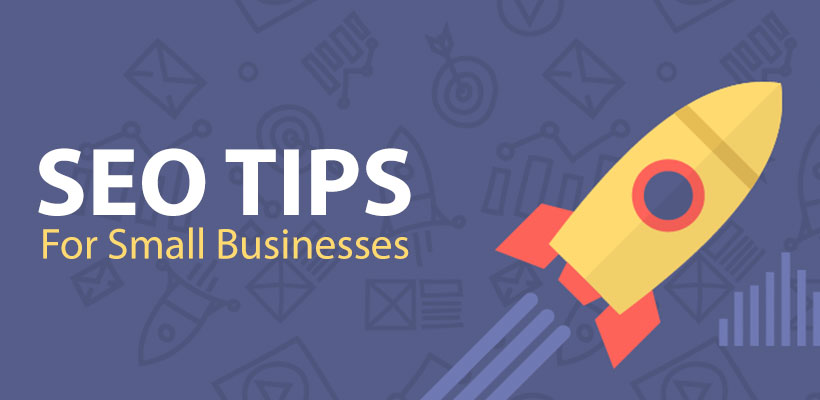 If you're marketing to a local audience, there are more tools available than ever to help you. In this blog find out how you can use online services, as well as traditional marketing techniques, to attract local customers. Appealing to local customers is easier than ever. And it's not just about flyers and local ads; technology can also be used to market at town or even postcode level. It's just easier to market within a defined geography, for example, in theory I can consult across the whole of Europe, but in practice I keep to my home town and neighbouring counties. I can network locally, I can use local marketing techniques, and there are enough customers in the catchment area to keep me busy. It's about fishing where the fish are. Get listed in local directories The internet is an increasingly powerful local marketing tool. As a first step, you can get listed with Google My Business so customers searching Google and Google Maps find your contact details. Free Index is another free online directory. With FreeIndex, your local customers can add reviews. The more positive reviews you get, the higher up the index you go. Basic listings on sites such as Thomsonlocal.com and Yell.com are also free. Location-based social networking Another easy step to ensure local customers find you online is to optimise your website for local searches. At its most basic, this means including your operating area in the keywords of all pages and page title fields, and adding as many relevant backlinks (links from other local websites) as possible. Increasingly, social media is also lending itself to local marketing. Restaurants, bars and shops, for example, might consider listing on Foursquare, a free location-based mobile app that uses global positioning data to allow people to share information about places to eat, drink, shop or visit. Users can pick up automatic suggestions on where to go from within their vicinity. Traditional marketing for local businesses Face-to-face networking can be an extremely effective way of building local custom, particularly for business-to-business customers. If someone has met you, they are much more likely to want to use your firm or refer you. Networking can also help you develop marketing partnerships with local, complementary businesses. For example, a high-street wedding dress designer and florist may find it valuable to promote each other in their marketing. Other traditional marketing techniques you could use to attract local custom include targeted leaflet drops, press releases to local media and local sponsorship. Evaluating response to your local marketing To ensure you're spending your time wisely, measure the effectiveness of your marketing strategy. Put in tracking mechanisms so you can measure how successful each technique is. Evaluating web-based marketing can be easy using Google Analytics, which is free, but if you do only one thing, ask all new customers how they heard of your company.
0 Comments
 Content is at the heart of today’s marketing strategies as businesses use websites and blogs to demonstrate their own expertise. "Content marketing is the only marketing left." Seth Godin. If you run any type of professional business today you’ll know that, in terms of marketing, the world has changed dramatically. Tried and tested activities for getting client attention just don’t work like they once did:
You are expert in what you do and know that there are clients out there who would really value your assistance. How on earth do you get their interest? Changed buying behaviour in a web-driven world In the past five to ten years, the web has transformed buying behaviour. In the past, if a potential client wanted information on your services, they’d call your office and engage you or one of your sales team to get the lowdown on your offering. Today, their first port of call is undoubtedly the internet. They’ll search on Google, check out your website and expect to sign up to article updates or social media feeds to find out more. They are checking to see who they could best trust to solve their business problem. They expect to find valuable content. Your clients are in control, and you’d better make sure that the information you put up about your company answers their questions and positions you as the trusted resource they seek. Today, effective marketing is all about creating high quality content and sharing this across the web. By quality content we don’t just mean information that is well-written or artfully produced. We mean information that is first and foremost of real value to your particular client base. Educate your clients, show them best practice, tell them what to look out for, give them valuable tips on how to achieve success, demonstrate how you’ve helped others in their shoes, answer their problems, open their eyes. Creating and distributing this kind of relevant, valuable and compelling information will help you turn prospects into buyers and buyers into long-term fans. The opportunity Create the type of information your buyers actually want to consume. Marketing with valuable content is a win-win for your company and its customers - your potential clients get the information they require and you get to demonstrate your expertise and usefulness. Valuable content will help you sell. It helps your ideal clients find you and makes it easier for them to buy from you. It’s an opportunity to position your company as the place to turn to when the time comes to buy. A different approach to client communication If you want to reap the rewards that valuable content brings, you need to start communicating differently. There are different rules of engagement here. The valuable content approach is not about continuing to holler about how amazing your firm is, as we all did in the past. Unthink what you learned about sales and marketing messages. Your position should be not "look how great we are" (as in a traditional brochure) but "look how useful we are - we have the answers to your problems." This approach is truly customer-centred. Create content that is genuinely useful to your customers. Make yourself indispensable. Not easy but essential Creating and consistently delivering this type of information takes effort. You need to build a deep understanding of the needs of your target client base and of where and how you add value. It also takes time and skill. Valuable content may not be easy but it is an essential tool if you are going to grow and sustain a successful business in today's web-driven world.  If you've got a website, you need to be doing search engine optimisation (SEO). It's as simple as that. SEO can help your website to feature prominently on search engines like Google. So if you have a flower shop in Wigan, it's about optimising your website so that when someone types in "flower shop in Wigan" on Google, your website is at or near the top of the results list. Without SEO, you may not appear at all. SEO is a fast-moving discipline and there's a lot of competition for the pole positions online. So SEO is something that has to be done regularly, and it pays to keep up with the latest SEO tools and techniques. Find your keywordsIt starts with optimising your website with keywords and phrases. You may already have a good idea which words people use to find your business but it's important to keep an open mind and do your research. The results may surprise you. Google's keyword planner can help you find the most popular words and phrases. Once you've got your keywords and phrases, you need to make sure they are used in your web content and in meta tags, page descriptions, image tags and so on. This job is all about discipline but it really helps Google to find you when people search for those words or phrases. Google is incredibly sophisticated, however, and it can spot a cynical attempt to stuff a website full of keywords. It's important to use your keywords within good quality authored content - including blogs, articles, web copy and social media. Post regularly to improve your search results even more. Link-buildingLink building is the other important aspect of SEO. The more links to your site from high-quality, relevant sites, the higher you'll rank. But tread carefully - links should never be bought, forced or acquired by dodgy means. Take time to build links naturally by offering quality content that people want to read. Local SEOThe internet may be global, but most small firms are casting their net in their local area and their SEO strategy needs to reflect this. Using tools like Google My Business can help you rank well in local searches. Can I do my own SEO?If you understand the basics, it's totally possible to do SEO on a shoestring. Otherwise there are plenty of companies out there who can help you optimise your site - just make sure you do your due diligence to make sure they're not using dodgy tactics that could do you more harm than good. |
AuthorLisa Hunter is an experienced Marketing, Events and Project Manager. She has over 10 years’ experience working in the IT and marketing industry, delivering strategic marketing support and managing creative projects for a wide-range of clients. In this blog she shares her knowledge and experiences…we hope you enjoy it. Archives
June 2019
Categories
All
|
 RSS Feed
RSS Feed